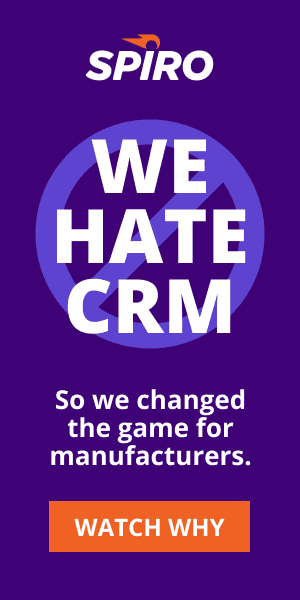3 Easy Ways to Use Psychology To Build Rapport With Prospects
I had a chance to catch up with legendary salesperson Gregg Carman at Mattersight Corporation, a company that provides SaaS-based enterprise behavioral analytics software. Gregg has a nose for strategic accounts and spells his name with two “g”s at the end, instantly making him a badass. He was also a key character in a Harvard Business School case study – focused on building rapport with prospects.
While he isn’t a psychologist by trade, Gregg’s simple behavioral tips will help you build rapport with prospects, establish trust and better relationships with your customers. (Another idea is to can also use Spiro a AI-Powered sales automation CRM, which helps you build rapport and close more deals to make more money.)
Despite his insane schedule, Gregg was nice enough to sit down with me to talk through some of his tips for sales success and how to use psychology to build rapport with prospects.
1. Listen to Build Rapport with Prospects
Oh what, another successful salesperson with some advice we’ve heard before? Color me shocked, but a lot of the top executives say the same things – one of them always being that you need to listen first. Listening to actual business problems is the one of the first keys to success. If you do speak, add value. It’s tough to build acumen with customers when everything is about driving them to the close.
2. Sell With Blatant Honesty
The ability to be completely and totally open is something that can go a long way. As salespeople, we often have to fight the perception that most buyers hate all of us – the sleazy guy with the Montblanc watch and pinstripe suit (Apologies if you work in sales and wear both of those to sales meetings but seriously – STOP). Whatever you do, don’t look or sound like a salesperson. Gregg reasons that customers are actually willing to pay a premium when it comes with blatant honesty.
[mc4wp_form id=”30369″][/mc4wp_form]
He’s found that blatant honesty build rapport with prospects – and they will pay a premium for that. In his experience, that mutual trust has even helped him close deals when selling a perceived inferior product or service. Gregg has even used this philosophy to land the impressive negative close. By simply being up front with a customer and telling them that their product was not the right fit, the customer started to rethink their process and they continued to pursue a deal with Gregg because of his blatant honesty.
3. Communicate In Your Customer’s Channels
Knowing your customer’s communication channels is an important key to building comfort and rapport. How do they like to communicate? Some salespeople prefer to keep everything to email, while some sales professionals swear that making calls is they path to success. Others may prefer to try and meet in person. Understand what makes your customers more comfortable and adjust accordingly.
In other words, how can you build rapport with prospects if you’re not on their wavelength.
Gregg went on to explain the advanced psychology behind this, which originated from Taibi Kahler (a former presidential communications adviser to Bill Clinton). The theory, known as Process Communication Model (PCM), at a high level states that people have certain ways that they prefer to communicate. Someone will be more likely to engage you in dialogue when they are engaged in ways they are comfortable with.
Gregg takes it to the next level, often matching brevity/verbosity and preferred text formatting (list vs written paragraph) with customers.

